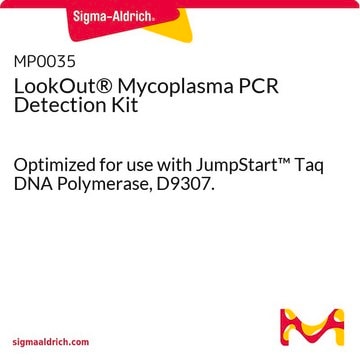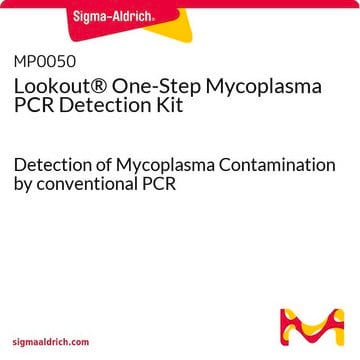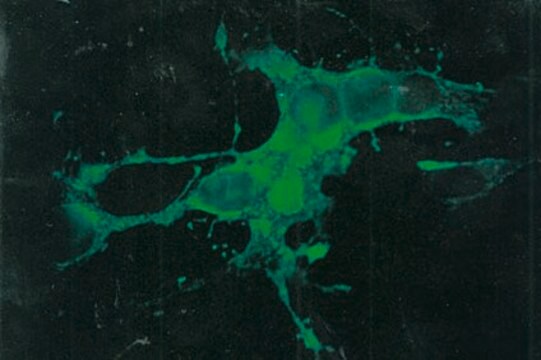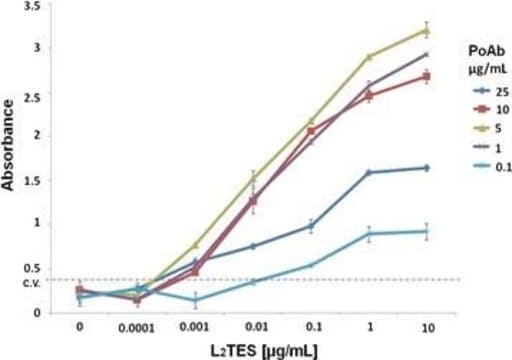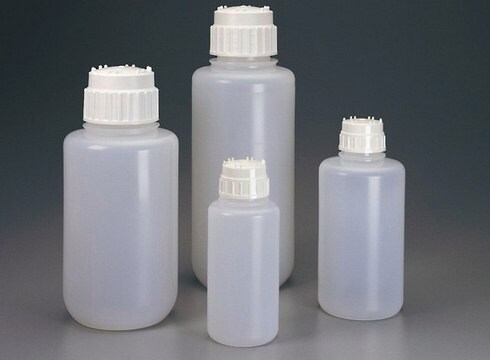MP0040A
LookOut® Mycoplasma qPCR Detection Kit
Synonym(s):
Quantiative PCR mycoplasma detection kit
About This Item
Recommended Products
usage
sufficient for 25 reactions
Quality Level
quality
Not suitable for clinical diagnostic use.
packaging
pkg of 1 kit
storage condition
dry at room temperature
technique(s)
PCR: suitable
application(s)
detection
microbiology
storage temp.
2-8°C
General description
The primer/probe system detects the highly conserved 23S rRNA operon coding region of the mycoplasma genome. The kit is highly specific and does not detect eukaryotic DNA. The detection spectrum includes most mycoplasma species identified as cell culture contaminants (see Table 2 in the technical bulletin). The kit contains the nucleotide dUTP instead of dTTP and is, therefore, suitable for UNG pretreatment.
This kit already contains Taq polymerase in the Mycoplasma Mix.
Application
Legal Information
Storage Class Code
10 - Combustible liquids
Flash Point(F)
188.6 °F
Flash Point(C)
87 °C
Choose from one of the most recent versions:
Certificates of Analysis (COA)
Don't see the Right Version?
If you require a particular version, you can look up a specific certificate by the Lot or Batch number.
Already Own This Product?
Find documentation for the products that you have recently purchased in the Document Library.
Customers Also Viewed
Articles
Know when to use antibiotics to prevent bacterial or fungal, mycoplasma, or viral contamination in cell culture and find suitable antibiotics or other biological agents.
Detect mycoplasma contamination in cell culture through the PCR, DNA stain, or culture tests. Discover mycoplasma prevention, elimination, and detection kits.
Review the basics of using fetal bovine (or calf) serum for cell culture and how sourcing and regulations affect the price of sera for cell-based assays.
Overview on how to maintain proper cell culture laboratory safety including steps on performing lab risk assessments, surface disinfection, biohazard and waste removal. Free ECACC handbook download.
Protocols
Mycoplasma contamination of cell cultures is a serious issue impacting cell model validity. PCR testing for mycoplasma is an inexpensive, sensitive, and specific method for detecting contamination.
Our team of scientists has experience in all areas of research including Life Science, Material Science, Chemical Synthesis, Chromatography, Analytical and many others.
Contact Technical Service